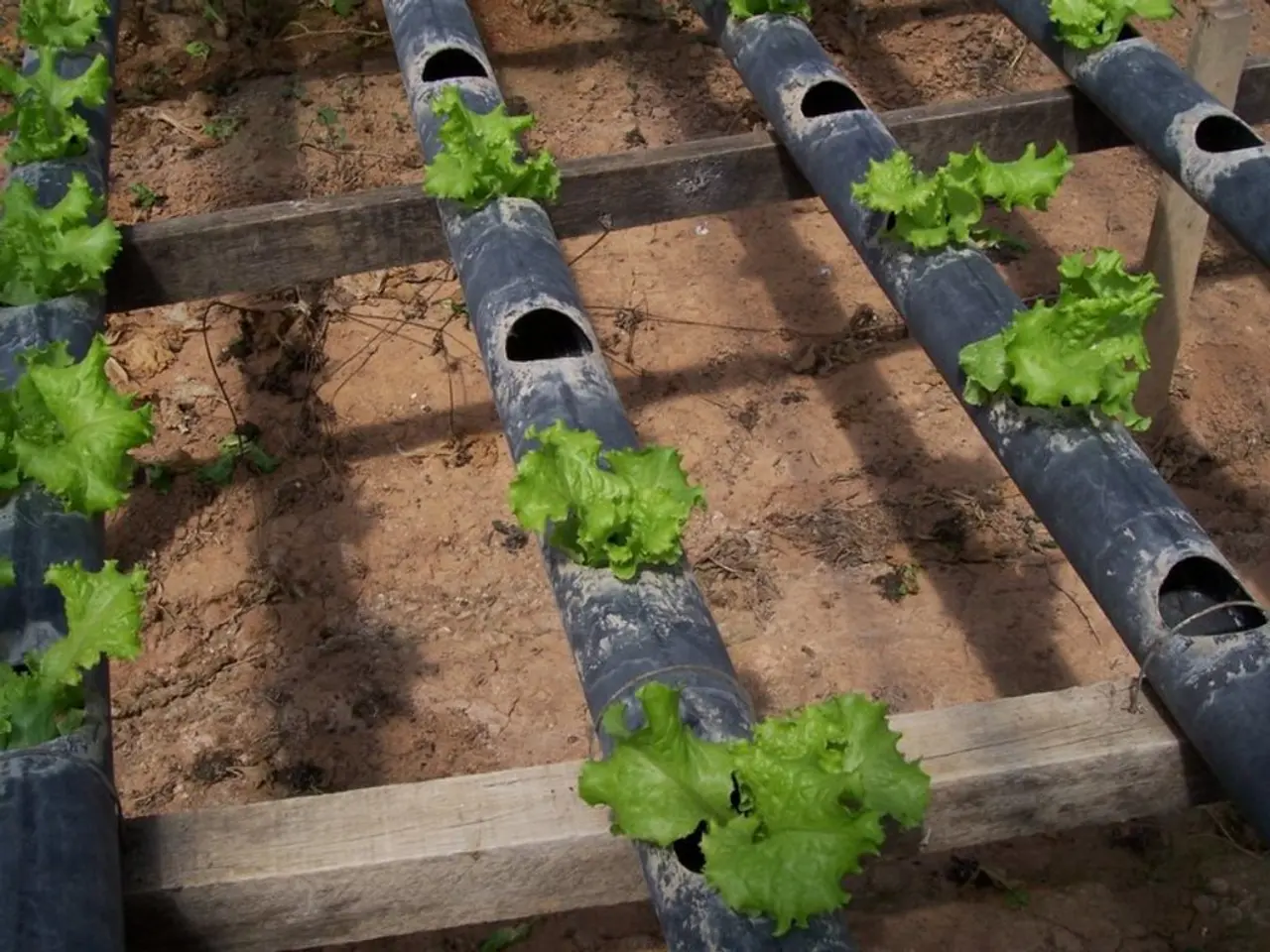Pushing Back Against Fiscal Strain: Wüst Demands State Compensation in Investment Plan
Claimants Seek Reparations in Investment Scheme - Pushes for Compensation in Investment Program: Wüst Advocates for Financial Reimbursement in Investment Scheme
Don't mess with Hendrik Wüst, Minister President of NRW (CDU), when it comes to his state's budget! Wüst is taking a firm stand against the federal government, demanding full compensation for the revenue losses states and municipalities are expected to face due to the planned federal tax relief.
Wüst's fiery rhetoric echoed around Düsseldorf as he asserted that the time-honored principle of "he who orders, pays" straight out of the Union-SPD coalition agreement must now be put into action. "We're not just floating along as the gravy on the soup," Wüst declared passionately. "We're approaching the federal government with the claim of full compensation."
A 90% reimbursement might even be possible if a reliable and long-term solution is found, he suggested ahead of the summit meeting with Chancellor Friedrich Merz (CDU) on July 12. Still, Wüst expressed optimism about the meeting, declaring, "I'm in good spirits." Yet, the bill must advance if progress is to be made by the Bundesrat session on July 11; otherwise, it will end up in mediation committee hell.
Wüst gave props to the investment plan proposed by Federal Finance Minister Lars Klingbeil (SPD), praising it as a necessary growth booster for Germany, which has been in recession for three consecutive years - uncharted territory even during the oil crises and coronavirus pandemic. Germany needs new growth impulses to secure jobs, he stressed.
The federal government's plan includes enhanced tax depreciation options for businesses making investments, followed by a gradual corporate tax rate decrease to 10% by 2032. The downside? These changes will disproportionately hit municipalities in the wallet, who will bear the brunt of around 30 billion euros by 2029, according to Wüst's prediction. The NRW state budget alone could be burdened with 3.7 billion euros by 2029, while municipalities might face an extra three billion in losses.
Wüst pleaded for urgency in addressing the old debt problem, urging swift implementation of the agreed special asset worth 500 billion euros. As it stands, the states are set to receive one fifth of it (100 billion euros), and the federal government must submit a bill to reduce municipal debts before the summer break. If the old debt issue isn't resolved soon, many municipalities won't be able to invest, he warned.
With the NRW municipal elections happening on September 14, Wüst underscored the necessity of binding regulations being in place. While NRW has already allocated billions for debt reduction, the ball is now in the federal government's court. "Break free from this crushing debt burden," Wüst urged the federal government. He also warned, "Neither the investment fund nor the debt leeway for the states was ever agreed upon as a quid pro quo for approving the immediate program."
NRW municipalities have joined forces, urging the federal government not to renege on its promises and to provide genuine compensation for tax losses. "If you mess with our tax revenue, you mess with our infrastructure and climate neutrality funding," they warned ominously. With the financial strain already at an all-time high, they need real help - stat!
- Hendrik Wüst
- Investment program
- Federal government
- NRW
- Tax loss
- CDU
- Düsseldorf
- Coalition agreement
- SPD
- Friedrich Merz
- Growth booster
- Germany
- Compensation
- Municipality
- Bold
- Lars Klingbeil
Insights:
- Germany's three-year recession is unlike any other, not even during the oil crises or the coronavirus pandemic
- Federal Finance Minister Lars Klingbeil's investment program consists of better tax depreciation options and a gradual corporate tax rate decrease to 10% by 2032
- The planned tax relief measures could lead to lost revenue for states and municipalities, with NRW potentially losing 3.7 billion euros by 2029
- Old debts must be addressed before the federal government can expect cities and municipalities to invest in infrastructure and climate neutrality
- Hendrik Wüst, the Minister President of NRW, has demanded that the federal government fully compensate states and municipalities for the revenue losses anticipated due to the proposed federal tax relief, highlighting the importance of the "he who orders, pays" principle from the Union-SPD coalition agreement.
- As the investment program proposed by Federal Finance Minister Lars Klingbeil (SPD) is deemed a necessary growth booster for Germany, Hendrik Wüst, CDU, has cautioned against unfairly burdening municipalities with disproportionate financial losses from the plan, estimating that NRW alone could lose 3.7 billion euros by 2029.




